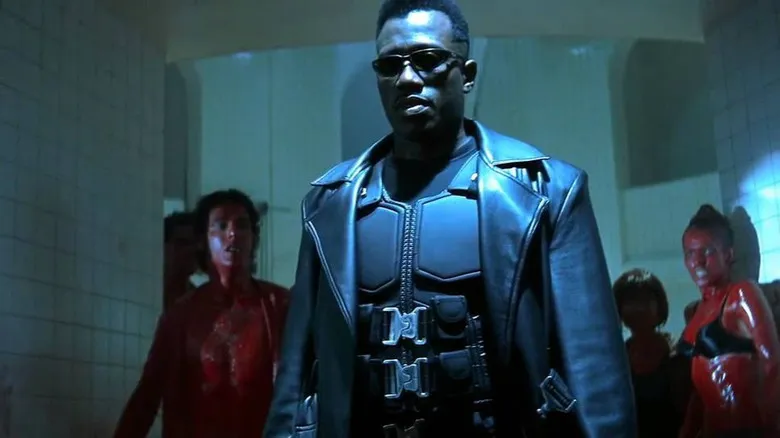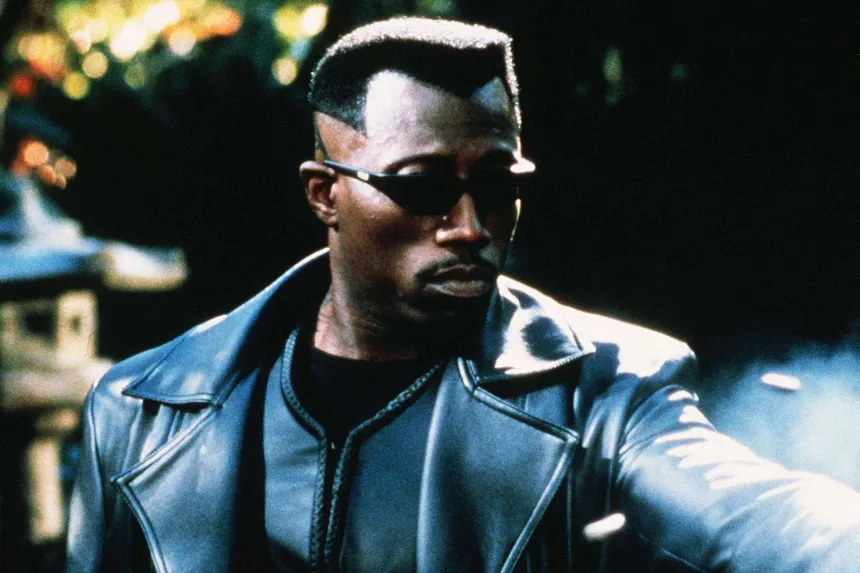Wesley Snipes’ portrayal of Blade, a half-human, half-vampire “daywalker,” has had a profound impact on pop culture. The character’s journey through the superhero genre is a testament to perseverance and the enduring appeal of the genre. Snipes’ performance brought a new level of complexity to the genre, introducing a mix of action, horror, and comic book elements.
The first Blade film faced numerous behind-the-scenes hurdles, including studio interference, creative conflicts, and interpersonal struggles. Despite these challenges, the film’s impact was significant, paving the way for a sequel, Blade II, and a third film, Blade: Trinity. However, the tension between Snipes and screenwriter David S. Goyer led to the latter’s refusal to communicate with the production team, resulting in a poor reception for the third film.
Despite this setback, Snipes has reprised his role as Blade, making appearances in Deadpool and Wolverine, bringing the character full circle. The reboot, starring Mahershala Ali, has faced its own set of roadblocks, including changes in the director and script. However, the enduring legacy of Blade as a character is undeniable, cementing Wesley Snipes’ place as one of the most beloved and enduring superheroes of all time.

Wesley Snipes as Blade (Image via Getty)
The impact of Blade on pop culture is significant, introducing a new level of complexity and depth to the superhero genre. The film’s success led to a new wave of comic book-inspired films, paving the way for future successes like the Marvel Cinematic Universe. The character’s enduring appeal is a testament to the power of perseverance and the importance of staying true to one’s vision.
As the superhero genre continues to evolve, the legacy of Blade will undoubtedly be felt. Snipes’ portrayal of the character has become iconic, and his role in shaping the genre cannot be overstated. The character’s journey is a reminder that even in the face of adversity, perseverance and dedication can lead to success and a lasting impact on popular culture.
























